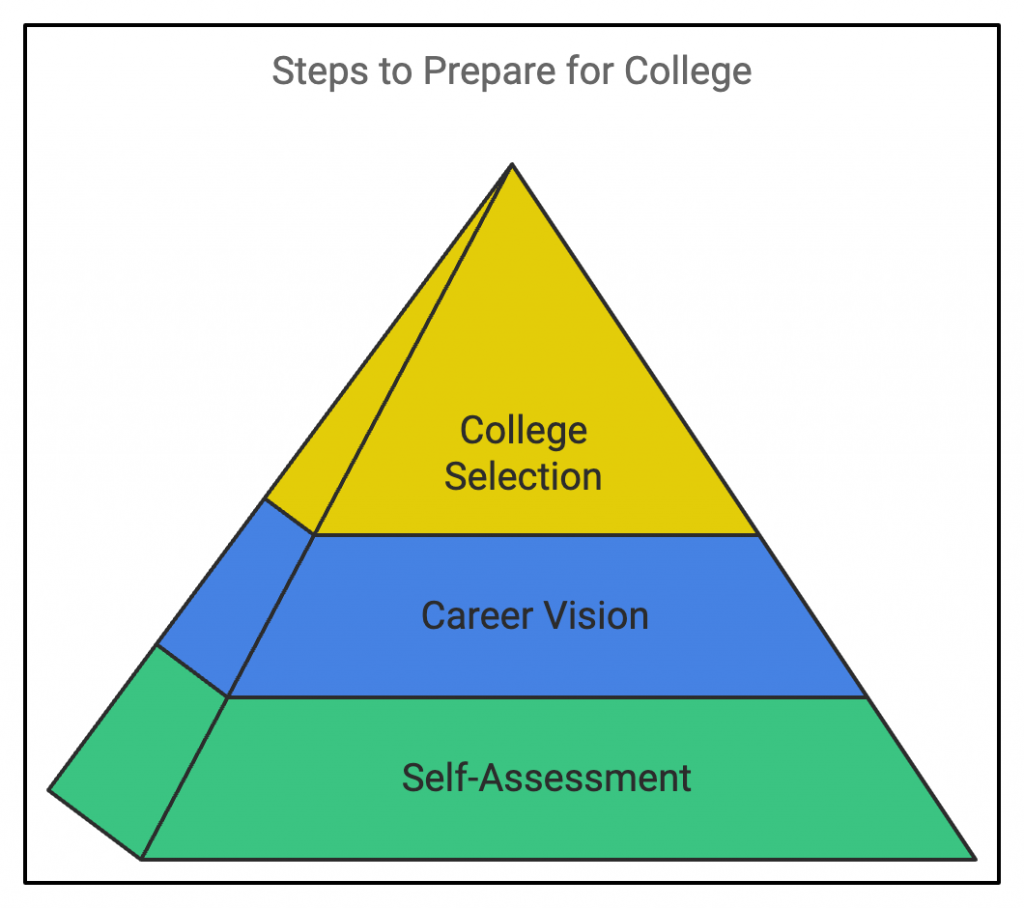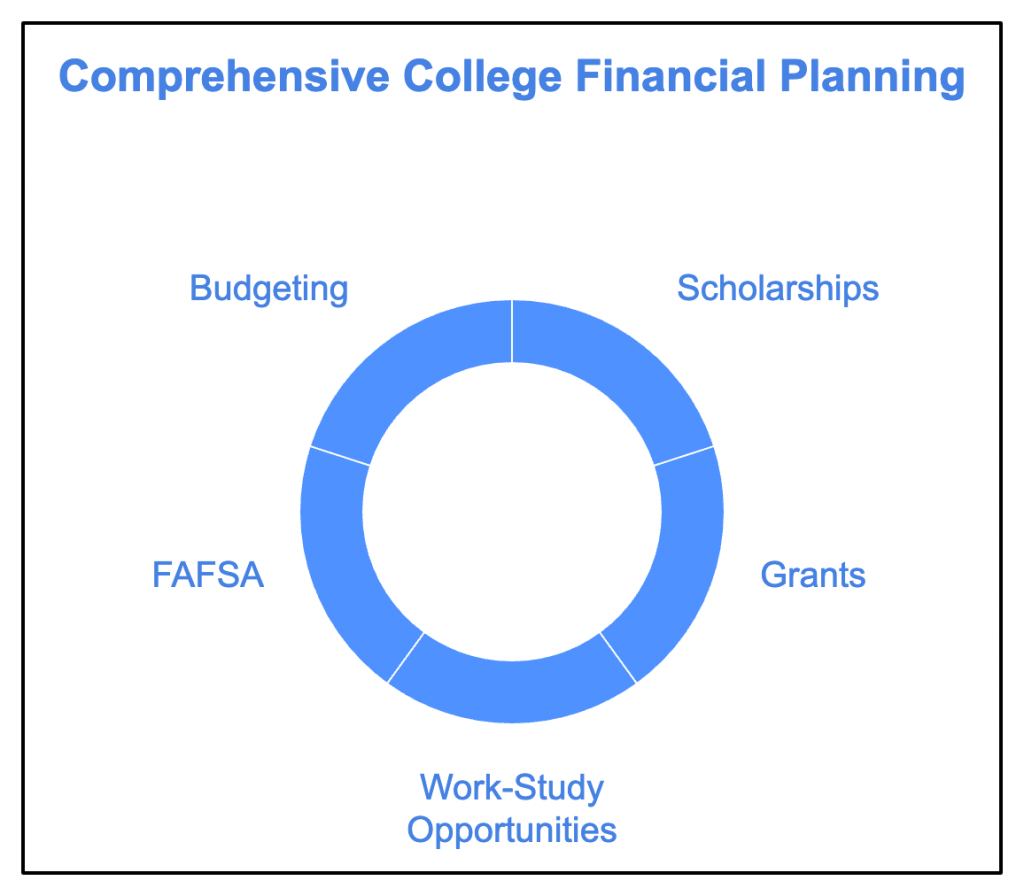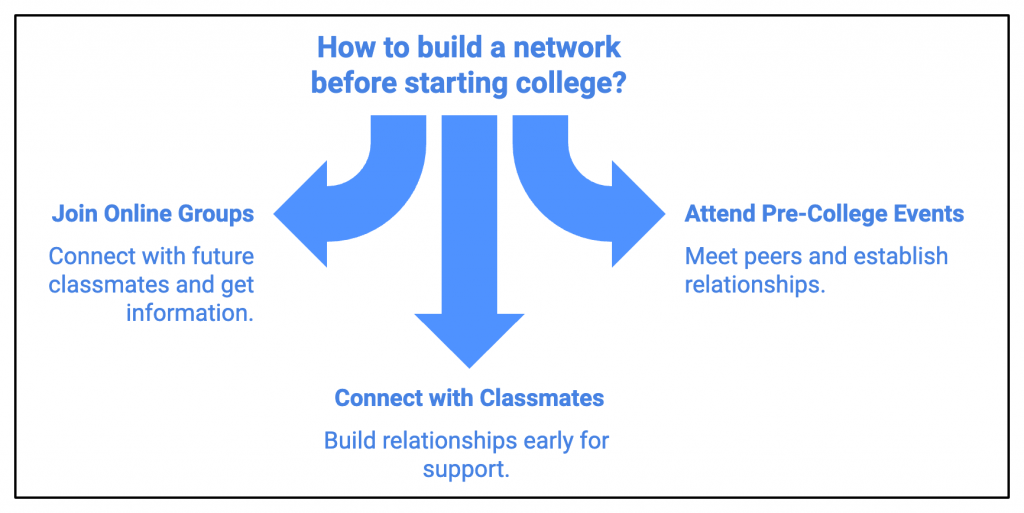How to prepare for college
Getting ready for college is both exciting and challenging, but it’s a crucial step in laying the foundation for future success. Whether you’re a high school student or an adult returning to education, the steps you take to get prepared for college will greatly impact your overall experience. Here’s a guide to help you get ready for this important journey.
If you prefer listening, you can check out our podcast about this article on YouTube.
Steps to Prepare for College
1. Envision Your Future
The first step in preparing for college is to envision your future. What kind of career do you see yourself in? What are your passions and interests? This self-assessment is crucial as it helps you select a college and a major that align with your goals. Utilize tools like online career assessments or interest inventories offered by high schools to gain insight into your personality, values, and potential career paths. These tools can guide you in choosing a college that offers strong programs in your areas of interest.

2. Academic Preparation
Academic readiness is one of the most important steps to prepare for college. Challenge yourself by taking advanced courses in high school, such as AP or IB classes, which can also earn you college credit. Developing strong study habits now will pay off later when college coursework intensifies. Additionally, focus on improving your time management skills. Create a study schedule that allows you to balance your academic responsibilities with extracurricular activities and personal time.
3. Research Colleges Thoroughly
Choosing the right college is a major part of getting ready for college, and it requires thorough research. Start by making a list of potential colleges and investigating what each one offers. Consider factors such as campus culture, academic programs, class sizes, and the availability of financial aid. Talk to current students and alumni to get a sense of what life is like on campus. Visiting college websites and attending college fairs can also provide valuable insights.
4. Develop Study and Time Management Skills
One of the best ways to prepare for college is by developing disciplined time management skills. Begin practicing these skills while still in high school. Create a weekly schedule that includes time for classes, study sessions, extracurricular activities, and relaxation. Prioritize your tasks by importance and deadline to ensure you meet all your responsibilities without feeling overwhelmed.
5. Plan Your Finances
College can be costly, so early preparation for college finances is crucial. Begin by researching scholarships, grants, and work-study opportunities. Fill out the Free Application for Federal Student Aid (FAFSA) to determine your eligibility for federal aid. Additionally, consider creating a budget that accounts for tuition, books, supplies, and living expenses. Understanding your financial situation will help you make informed decisions and avoid unnecessary debt.

6. Prepare Socially and Emotionally
Getting ready for college involves more than academics—it’s also about social and emotional preparation. College is a time to develop independence, build new relationships, and explore your identity. Start by honing your social skills—learn to communicate effectively, make new friends, and navigate social situations. Additionally, build emotional resilience by learning to manage stress, cope with challenges, and seek help when needed. Participating in extracurricular activities in high school can help you develop these skills.
7. Master Essential Life Skills
Moving out for college requires more than just academic prep. You’ll need practical life skills like cooking, doing laundry, managing a budget, and maintaining a clean living space. If you haven’t already, start learning these skills before you leave for college. Being self-sufficient in these areas will make the transition to college life smoother and less stressful.

8. Attend Campus Visits and Orientation
Visiting campuses is an excellent way to get a feel for the colleges on your list. During these visits, take the time to explore the campus, talk to students and faculty, and attend classes if possible. Orientation programs are also vital as they help you acclimate to college life, meet other incoming students, and familiarize yourself with campus resources. These experiences can provide clarity and confidence as you make your final college choice.
9. Build a Network
College is as much about networking as it is about academics. Start building your network before you even set foot on campus. Join online groups for incoming students, attend pre-college events, and connect with your future classmates. Building relationships early can provide you with a support system and open doors to opportunities once you start college.

10. Prioritize Your Mental and Physical Health
Maintaining your health is essential for success in college. Establish a routine that includes regular exercise, a balanced diet, and sufficient sleep. Mental health is just as important—practice stress management techniques such as mindfulness, meditation, or journaling. Remember, it’s okay to seek help if you’re struggling. Most colleges offer counseling services and other resources to support student well-being.
Things to Do to Get Ready for College
Preparing for college involves more than just choosing the right school or developing academic skills. Here are a few practical things to do that will help you start college successfully:
Getting Ready for College Life
Preparing for college life goes beyond academics. It’s about adapting to a new social environment and managing independence:
Final Preparations Before College Starts
As your first day of college approaches, it’s time to make your final preparations. Here are some last-minute steps to ensure you’re ready:
Conclusion
Preparing for college is a multi-faceted process that involves more than just academics. Through careful preparation for college—envisioning your future, building skills, and maintaining your well-being—you’ll be fully ready to thrive. Start your preparation early, stay organized, and don’t hesitate to seek support when needed. College is a significant step in your life’s journey—make the most of it by preparing thoroughly and thoughtfully.



